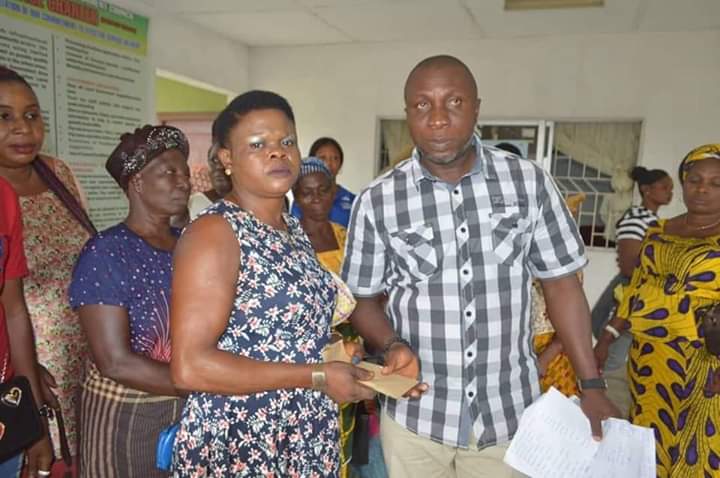News
It breaks my heart to see children in the streets who don’t have food to eat – Little Miss Delta tells Tidi


Six-year-old Little Miss Delta, Treasure Metsese, on Tuesday told the chairman of the Warri South Local Government Area, Dr Michael Tidi, that it breaks her heart to see little children in the streets who don’t have food to eat.
Little Treasure who was crowned Little Miss Delta recently, said this while paying a courtesy call on the chairman of Warri South Local Government Area, Dr Michael Tidi at his office at the Council’s Secretariat.
She appealed to the Warri South Council Chairman to support her pet project of putting smiles on the face of the less privileged children in the streets.
She said, “I am Princess Treasure Metsese. I come from Omadino community in Warri South Local Government Area of Delta State. I am a child right activist and the voice of the girl child.
“It breaks my heart when I see children out there who do not have food to eat, who do not have hope for education.
“Daddy, I know with your support I will put smiles on the faces of these children who do not have anybody to care for them.”
Responding, Dr Michael Tidi said as a government, they will do all they can to support her achieve her dreams of putting smiles on the faces of the less privileged children in the streets.
Tidi, who was excited at the rare display of intelligence exhibited by Little Miss Delta, urged her Managers, who are also her parents, not to allow her to be distracted from her dreams.
Tidi congratulated her on her new office praying God to be with her throughout her journey.
“I have heard you. All we can do at this end is to support this your noble cause of how you can put smiles on the faces of those other children out there whose parents cannot fend for them.
“Once again I want to congratulate you on this your office. As a government we are going to see how we can support this your noble cause.
“The departments of community relation is going to work closely with your manager, who are also your parents, to see how we are going to support you.
“I am very happy to see a six year old child exhibit what I would call, a rare display of intelligence. Keep it up, maintain your focus, don’t lose sight of your education because that is what will showcase you further to the global community. It is very important.
“I am saying this in the presence of your managers who are also your parents. Please do not lose sight of her education. There may be so many side distraction while she is trying to actualize her vision, her aim and pet project. Please do not lose sight of her education.
“You must maintain this tempo and I want to believe that God who started this journey will bring it to fruition.
“The child cannot stop here, she will grow, she will come to stardom, kings and queens will come to the brightness of her rising. Anything that will bring distraction, we pray that all that will be taken away from her,” Tidi said.



